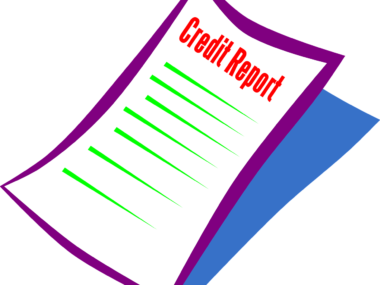Pursuing higher education most often requires significant financial investment. Higher education does not come cheap and while scholarships, grants, and personal savings can help cover a portion of the costs, it is still quite common for many students to find themselves seeking loans to bridge the financial gap. One prominent institution that offers a variety of loan options for students is the Commonwealth Bank.
Commonwealth Bank of Australia, commonly known as CommBank, is one of Australia’s largest and most well-established banks. With a strong presence in both retail and commercial banking sectors, CommBank has been a key player in providing financial solutions to a wide range of customers, including students seeking funding for their education. These loans are specifically designed to assist students with financing their education-related expenses, including tuition fees, living costs, books, and other essentials.
Types of Commonwealth Bank Loans for Students
CommBank offers a range of loan options catering to different educational needs. These loans can broadly be categorized into:
- Personal Loans for Education: These loans are designed to provide students with a lump sum of money to cover educational expenses, such as tuition fees, textbooks, accommodation, and more. The repayment terms and interest rates can vary based on the loan amount and the student’s creditworthiness.
- Unsecured Personal Loan: This type of loan is designed to provide students with financial assistance and they do not require collateral, making them accessible to a wider range of students.
- Student Line of Credit: A student line of credit works similarly to a credit card, where students are given a credit limit that they can borrow against. This option provides flexibility, as students can borrow and repay funds as needed, only paying interest on the borrowed amount.
- Student Credit Cards: CommBank offers specific credit cards designed for students. These cards often come with features such as lower credit limits and reduced annual fees, making them suitable for managing day-to-day expenses and building credit.
- Graduate Loan: Designed for recent graduates, this loan helps ease the transition from student life to professional life. It offers lower interest rates and extended repayment terms, recognizing the challenges new graduates may face while entering the workforce.
Key Features and Benefits of Commonwealth Bank Loan
- Competitive Interest Rates: CommBank strives to offer competitive interest rates to help students manage the cost of borrowing.
- Flexible Repayment Options: Depending on the type of loan, students may have various repayment options, such as interest-only payments during the study period and full repayments after graduation.
- Access to Resources: Students who choose to bank with CommBank gain access to various financial resources, including budgeting tools, financial advice, and educational materials on managing money.
- Building Credit History: Responsible repayment of student loans and credit cards can help students establish a positive credit history, which is crucial for future financial endeavors.
- Online Banking Services: Commonwealth Bank provides user-friendly online banking platforms that allow students to monitor their loan details, make payments, and manage their finances conveniently.
- Loan Amounts and Loan Terms: The loan amount can vary depending on the type of loan and the borrower’s financial circumstances. Unsecured personal loans typically offer higher loan amounts compared to student-specific loans. Loan terms also vary, with unsecured personal loans often offering longer repayment periods compared to student-specific loans.
- Deferment Options: Some loans might offer deferment options, allowing students to postpone repayments in case of financial hardship, although interest may still accrue during this period.
Eligibility Criteria
Eligibility criteria for Commonwealth Bank loans for students can vary based on the specific loan type. However, some common factors that may affect eligibility include:
- Citizenship or residency status
- Age of the applicant
- Enrollment in an accredited educational institution
- Proof of income or ability to repay
- Credit history
Application process for the Commonwealth Bank loans for students
- Research and Compare: Research the different loan options available, compare their features, interest rates, and repayment terms to find the one that best suits your needs.
- Gather Documents: Prepare the necessary documents, such as proof of enrollment, income information, and identification.
- Online Application: Most applications can be completed online through the Commonwealth Bank website. Follow the instructions and provide accurate information.
- Application Review/Approval Process: The bank will review your application and may request additional information if needed. This might involve a credit check and verification of the provided information.
- Loan Approval: Once your application is approved, you will receive information about the loan terms, including the loan amount, interest rate, and repayment schedule.
- Acceptance and Funds Disbursement: Review the loan offer carefully and, if satisfied, accept the terms. This might require you to sign a loan agreement. After accepting the loan offer, the funds will be disbursed to your nominated bank account, helping you cover your education-related expenses.
Are you unable to pay back your Commonwealth Bank student loan?
If you find yourself in the situation where you are unable to meet up with your loan commitments, it is important to address the situation promptly and take the necessary steps to manage your financial difficulties. Ignoring the issue can lead to additional fees, penalties, and damage to your credit score. Here’s what you can expect and some actions you can take:
- Communication is Key: As soon as you realize you might have trouble making your loan payments, reach out to Commonwealth Bank. Open communication can help you explore potential solutions and show your willingness to address the situation responsibly.
- Loan Repayment Assistance: this includes different options such as:
- Deferment or Forbearance: Depending on the type of loan, you might be able to temporarily suspend or reduce your payments. During this period, interest may still accrue, but it can give you some breathing room to improve your financial situation.
- Income-Driven Repayment Plans: If your loan type allows for it, you might be able to switch to an income-driven repayment plan. This adjusts your monthly payments based on your current income and family size, making them more manageable.
- Loan Restructuring: Commonwealth Bank might work with you to restructure your loan terms to make your payments more affordable. This could involve extending the loan term to lower your monthly payments. Keep in mind that this might result in paying more interest over the life of the loan.
- Loan Consolidation: consolidating multiple loans into one might simplify your repayment process. It can also potentially offer you a longer repayment term, reducing your monthly payments. However, again, this could lead to paying more interest overall.
- Credit Reporting: If you miss payments, Commonwealth Bank will report this to credit bureaus, which can negatively impact your credit score. A lower credit score can affect your ability to get approved for other loans, credit cards, or even impact job prospects in some cases.
- Collection Efforts: If you consistently miss payments and do not communicate with the bank, they might escalate their efforts to collect the debt. This could involve sending your account to a collections agency, which can be a stressful and uncomfortable experience.
- Legal Action: In extreme cases, if the debt remains unpaid, the bank could potentially take legal action to recover the funds. This might involve obtaining a court judgment against you and seeking wage garnishment or other means of repayment.
- Seek Financial Counseling: If you’re struggling with your student loan and overall finances, it’s a good idea to seek help from a financial counselor or advisor. They can offer guidance on managing your debts, creating a budget, and exploring options to get your finances back on track.
- Avoid Predatory Service: Be cautious of companies that promise to help you with your student loan debt in exchange for upfront fees. Research any service thoroughly and ensure they are reputable before signing up.
- Bankruptcy: In very rare cases, some borrowers might consider filing for bankruptcy as a last resort. However, keep in mind that student loans are typically not easily discharged through bankruptcy and should be considered an absolute last option.






